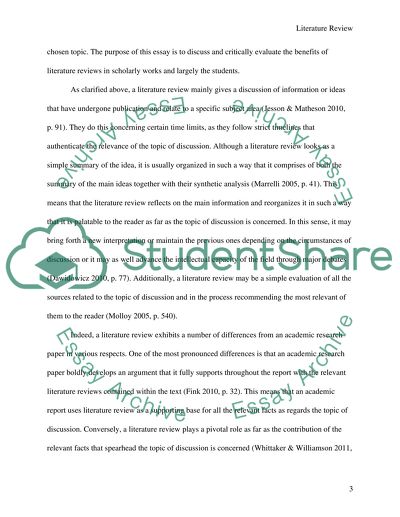Cite this document
(“'The benefits of a literature review' Essay Example | Topics and Well Written Essays - 2000 words”, n.d.)
Retrieved from https://studentshare.org/literature/1484997-a
Retrieved from https://studentshare.org/literature/1484997-a
('The Benefits of a Literature review' Essay Example | Topics and Well Written Essays - 2000 Words)
https://studentshare.org/literature/1484997-a.
https://studentshare.org/literature/1484997-a.
“'The Benefits of a Literature review' Essay Example | Topics and Well Written Essays - 2000 Words”, n.d. https://studentshare.org/literature/1484997-a.


